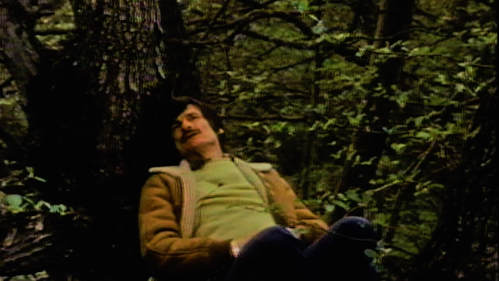|
I remember the first time I sat down and watched Andrei Tarkovsky’s lyrical, meandering sci-fi epic Stalker. It was a long time ago, before the advent of smartphones and tablets. I watched a beat-up VHS copy on a non-“smart” TV, and had no ability to pause every few minutes and swing by Facebook, Twitter, or Instagram for some instant distraction and digital small talk. The almost three-hour film—with its long, languid takes and endless stretches of silence—is a meditative exercise, a test in patience that at times seems like its own reward. I recall at the time thinking about how didactic Tarkovsky’s work is, in the best possible sense of the word. It teaches its viewers to watch, listen, and wait. It’s a course best taken alone, like the journey into the film’s mysterious “Zone,” since the presence of another, likely perplexed, viewer might break the quiet spell the movie casts. But while watching a Tarkovsky film—whether Stalker, Andrei Rublev, Solaris, or any of his other pensive creations (watch them online here)—may be a solitary activity, it need not at all be a lonely one. The distinction between healthy solitude and loneliness is one Tarkovsky is particularly interested in. It’s a cinematic theme he pursues, and a pedagogical one as well. In the video above from The Criterion Collection, Tarkovsky offers some thoughtful insights that can only seem all the more relevant to today’s always-on, multi-screen culture. Unfortunately, the subtitles translate his words selectively, but Maria Popova at Brain Pickings has a full translation of the filmmaker’s answer to the question “What would you like to tell young people?” Like some ancient Pan dispensing timeless wisdom, Tarkovsky reclines in an old, gnarled tree—on what may very well be one of his wild, wooded film sets—and says, I don’t know… I think I’d like to say only that they should learn to be alone and try to spend as much time as possible by themselves. I think one of the faults of young people today is that they try to come together around events that are noisy, almost aggressive at times. This desire to be together in order to not feel alone is an unfortunate symptom, in my opinion. Every person needs to learn from childhood how to spend time with oneself. That doesn’t mean he should be lonely, but that he shouldn’t grow bored with himself because people who grow bored in their own company seem to me in danger, from a self-esteem point of view. Though I speak as one who grew up in an analogue world free from social media—the only world Tarkovsky ever knew—I don’t think it’s just the cranky old man in me who finds this advice compellingly sound. As a recent Tom Tomorrow cartoon satirically illustrated, our rapid-fire, pressure-cooker public discourse may grant us instant access to information—or misinformation—but it also encourages, nay urges, us to form hasty opinions, ignore nuance and subtleties, and participate in groupthink rather than digesting things slowly and coming to our own conclusions. It’s an environment particularly hostile to mediums like poetry, or the kinds of poetic films Tarkovsky made, which teach us the value of judgment withheld, and immerse us in the kinds of aesthetic experiences the internet and television, with their nonstop chatter, push to the margins. Tarkovsky’s general advice to young people can be paired with his challenging advice to young filmmakers, and all artists, in particular—advice that demands focused attention, patience, and commitment to individual passion and vision. taken from:
0 Comments
Leave a Reply. |
|

 RSS Feed
RSS Feed
